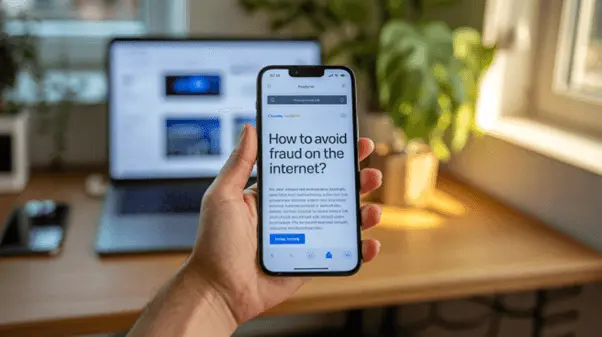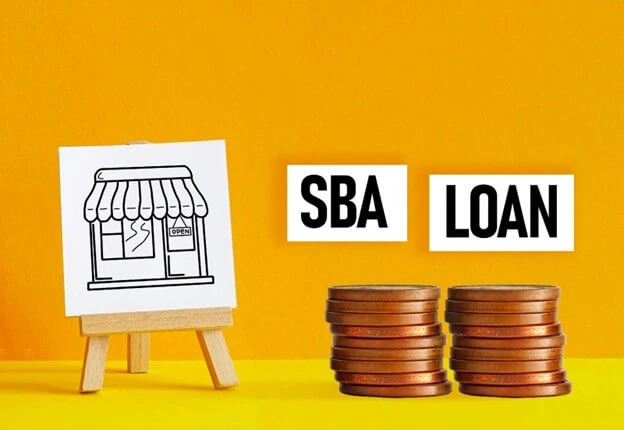
Online fraud isn’t just a scary headline you scroll past – it’s the biggest problem of our digital age. Every click on a suspicious link, every “limited offer” that seems too good to be true, every moment you thoughtlessly provide personal information – it’s like sitting down at a rigged table. Fraudsters are no longer amateurs, but professionals who use techniques such as phishing emails that look exactly like emails from your bank, fake investment offers that shine like gold, and identity theft schemes that can ruin your credit history before you even realize what happened. And the numbers? They’re terrifying. The FBI recorded over $16.6 billion in losses from online fraud in 2024. That’s not small change; that’s entire bank accounts that have been completely emptied – proof that too many people are falling victim to scammers.
It is especially important to be careful in areas such as online gambling, where trust in the platform is a key factor. When choosing sites to play on, users should pay attention to transparency, licenses, and reputation. For example, the website https://renomowanekasyno.pl/ collects information only about verified online casinos, which helps to avoid pitfalls and potential fraud. Such caution is the first step towards safe digital behavior.
The scale of fraud on the internet today
Fraud on the Internet didn’t just sneak in quietly – it’s exploded like a storm that came out of nowhere. Those old “Nigerian prince” emails? Cute in hindsight, almost like training wheels for scammers. What we’re up against now makes that stuff look like child’s play. These guys are running pixel-perfect bank site clones, spinning up fake e-shops that ghost you the second money leaves your account, and even using AI to mimic voices so real they could fool your own boss. The FBI’s 2024 numbers were brutal – record complaints and tens of billions lost. That’s not just unlucky folks losing coffee money. Whole businesses are getting ripped apart by fake invoices, hospitals locked down by ransomware, and government agencies scrambling after massive breaches.
The scariest part? The internet doesn’t care about borders. Some scammer sipping espresso halfway across the world can hit thousands of people with a single click. And now AI has turned into their sidekick, spitting out fake texts, fake profiles, and fake websites faster than anyone can blink. Even the “nah, I’d never fall for that” crowd is getting caught in these nets. Reality check: if you’re online, you’re on the hit list. That’s why awareness isn’t optional – it’s the armor you wear every time you log in. You can’t wipe scams off the map, but you can learn the red flags and sidestep the hustle before it wipes your balance clean.
Common types of fraud on the internet
Fraud on the internet isn’t just one scam – it’s a full deck of dirty tricks, and the crooks keep shuffling. Some scams are so sloppy you spot them a mile away, but others are slick enough to fool even people who think they’ve seen it all.
| Type of Fraud | How It Works | Why It’s a Threat |
| Phishing Scams | Fake emails or texts mimic banks, delivery services, or platforms to steal data. | Tricks you into giving away passwords or card details without realizing. |
| Identity Theft | Criminals steal personal info from breaches or scams to open accounts or loans. | Can ruin your credit score and lead to long-term financial damage. |
| Online Shopping Scams | Fake e-commerce sites sell products that never arrive or push counterfeits. | You lose money, and often your card info too. |
| Romance Scams | Fraudsters build fake online relationships to manipulate and request money. | Exploits emotions and can drain victims’ savings over time. |
| Investment & Crypto Scams | Ponzi schemes, fake trading platforms, or pump-and-dump coin projects. | Promise huge returns but wipe out your funds instead. |
| Tech Support Scams | Pop-ups or calls claiming your device is “infected,” demanding remote access. | Lets scammers install malware or charge for fake “fixes.” |
| Job & Work-from-Home Scams | Fake offers that require upfront fees or “money mule” work. | Steals both money and identity while leaving you jobless. |
| Charity & Disaster Scams | Fake charities collect “donations” during crises or disasters. | Plays on goodwill while diverting funds to criminals. |
At the end of the day, fraud on the internet always has the same endgame: grab your money or your personal details. The disguises change, but the tricks are familiar once you know the signs. Think pressure tactics, deals that feel too good, or anyone begging for sensitive info. The key isn’t living paranoid – it’s playing smart. If you spot the red flags before you click, you’re already miles ahead of the people who don’t.
Tools and resources to prevent fraud on the internet
The good news is that while scams are getting smarter, so are the tools designed to stop them. Antivirus software and firewalls remain the basics, but modern defenses include password managers, two-factor authentication apps, and VPNs that secure your online presence. Banks and credit card companies now provide fraud detection alerts, instantly flagging suspicious activity. Even browsers like Chrome and Firefox have built-in tools that warn you if a site looks fake or unsafe before you enter your details.
Beyond technology, there are official resources that help you stay safe. In the US, the FTC and FBI provide hotlines and scam alerts. In the UK, Action Fraud tracks and reports fraudulent websites. Many countries have similar watchdogs offering free advice and real-time updates about new threats. On top of that, non-profit organizations and cyber awareness blogs offer guides for spotting scams before they hit you. The smartest move is layering these resources-use tech tools daily, but also keep up with alerts so you know what new tricks criminals are trying.
What to do if you are a victim of fraud on the internet
Finding out you’ve been scammed online can feel like a punch in the gut, but quick action makes a huge difference. The first step is to secure your accounts: change your passwords, enable two-factor authentication, and contact your bank or credit card company to freeze or dispute charges. If you shared personal details, consider placing a fraud alert on your credit file to prevent identity theft. Saving emails, screenshots, and transaction records can also help investigators trace the fraud.
The next step is reporting. In the US, victims can contact the FTC or file a complaint with the FBI’s IC3. In the UK, Action Fraud is the central reporting hub. Most countries have similar agencies, and local police departments often coordinate with them. While not every case leads to money recovery, reporting helps track scammers and prevent others from being hit the same way. Victims should also seek support-financially through their bank, emotionally through counseling, or practically by monitoring accounts for suspicious activity. The key takeaway: don’t freeze in panic. Fraud on the internet happens fast, but if you act just as quickly, you stand a better chance of limiting the damage.
Conclusion
Fraud on the internet isn’t slowing down – it’s leveling up. The scams look cleaner, the stories sound smoother, and the crooks are hitting wider nets than ever. But here’s the thing: staying safe online isn’t about hiding under a rock, it’s about playing the game with your eyes open. Once you know how to spot the classics – the “your account is locked” phishing email, the fake shop with prices that look too good, the crypto pitch that promises moon money, or those urgent texts pushing you to click fast – you’re already miles ahead of the average player who just clicks and prays. Layer that with some muscle – unique passwords, two-factor logins, VPNs, fraud alerts, and keeping tabs on what the FTC or Action Fraud is shouting about – and you’ve built a defense that makes scammers sweat.







